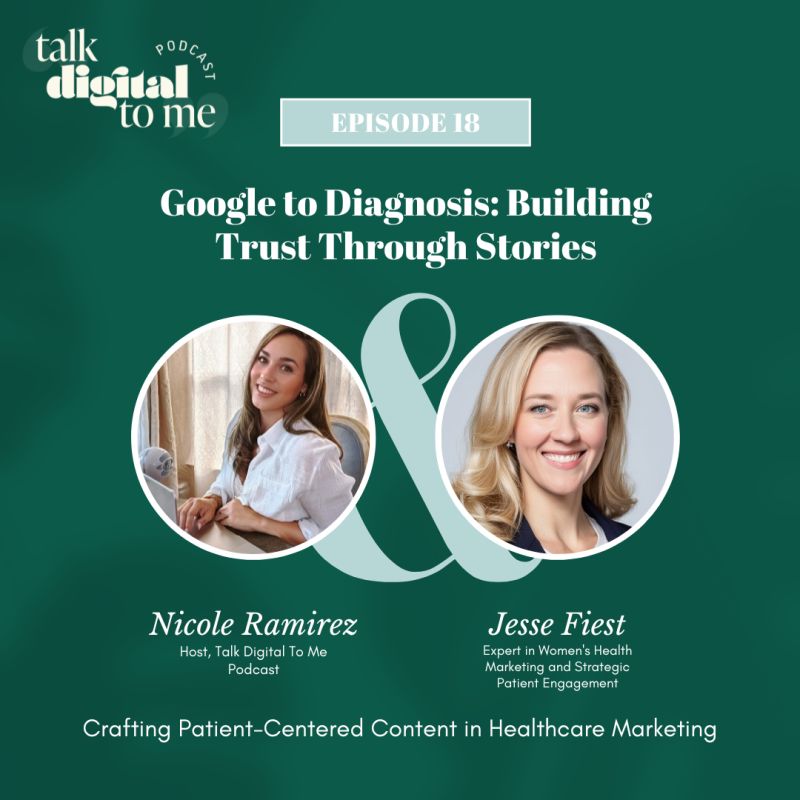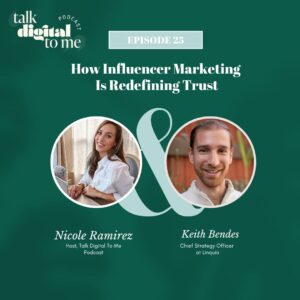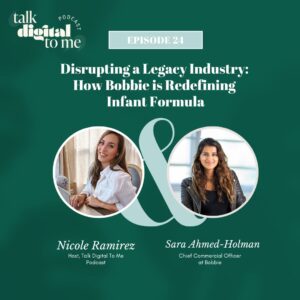Listen to the podcast:
Below are key insights and actionable takeaways from our conversation.
Key Takeaways
Key Takeaways
The Power of SEO and Content in Patient Acquisition
Patients begin their healthcare journey by searching symptoms online.
Google processes about 70,000 healthcare queries per minute, highlighting the demand for high-quality medical content.
Brands need to prioritize symptom-related content to establish trust before patients consider specific providers or treatments.
A Practical Content Funnel for Digital Healthcare
Jesse outlined a structured approach to content creation that aligns with the patient journey:
Symptoms – Patients search for answers to concerns like irregular periods or persistent fatigue.
Diagnostics – Once aware of potential issues, they seek clarity on tests and evaluations.
Conditions – Patients research medical diagnoses, treatment options, and potential outcomes.
Treatments – At this stage, patients evaluate providers and treatment plans, making conversion-focused content essential.
Pro Tip: Prioritizing symptom-based content enhances visibility and brings in net-new patients who haven’t yet chosen a provider.
Balancing Educational Content and Patient Trust
Healthcare marketers must focus on storytelling to humanize medical conditions.
Authentic patient stories resonate deeply and create emotional connections.
Case studies should highlight real experiences, from symptom recognition to treatment outcomes.
Trust-driven content fosters engagement and credibility, making providers the go-to resource for patient care.
SEO & Data-Driven Decision Making
Measuring content success in healthcare requires a strategic approach:
Organic Search Traffic: How well content ranks and attracts potential patients.
Click-Through Rates (CTR): Measures engagement with specific topics.
Conversion Metrics: Tracks new patient visits (NPVs) generated through content.
Lifetime Value of Patients (LTV): Aligns content strategies with high-value patient acquisition.
How Healthcare Providers Can Maximize Content Impact
For providers with limited marketing resources, Jesse suggests:
Optimizing Google Business Profiles – Ensures visibility in local searches.
Encouraging Patient Reviews – Authentic testimonials build trust.
Focusing on High-Impact Keywords – Prioritizing content with high search volume and commercial intent.
Creating FAQ Pages – Addresses common patient concerns proactively.
Trends Shaping Healthcare Content Strategy
AI & Interactive Content – Expect more symptom checkers, decision tools, and AI-driven chatbots.
Short-Form Video & Social Media Search – TikTok and AI-powered search are redefining how patients gather health information.
Clinician-Led Content – AI-generated articles must be backed by medical professionals to maintain credibility.
Quotes from Jesse Fiest
On Content Strategy: “Content isn’t just about driving clicks; it’s about guiding people through one of the most personal journeys of their lives.”
On the Importance of SEO: “Prioritizing symptom-based content enhances visibility and brings in net-new patients who haven’t yet chosen a provider.”
On Building Trust in Healthcare Marketing: “Trust-driven content fosters engagement and credibility, making providers the go-to resource for patient care.”
On Healthcare Content Trends: “AI-generated content will continue to grow, but authentic clinician-led storytelling will remain crucial for credibility.”
On Maximizing Content Impact: “If you want to rank and resonate, focus on high-impact keywords, patient stories, and FAQ content.”
Looking Ahead
As healthcare marketing evolves, authenticity, trust, and data-driven strategies will be the pillars of success. Jesse’s insights remind us that healthcare content must do more than inform—it must connect, guide, and empower patients throughout their journey.





